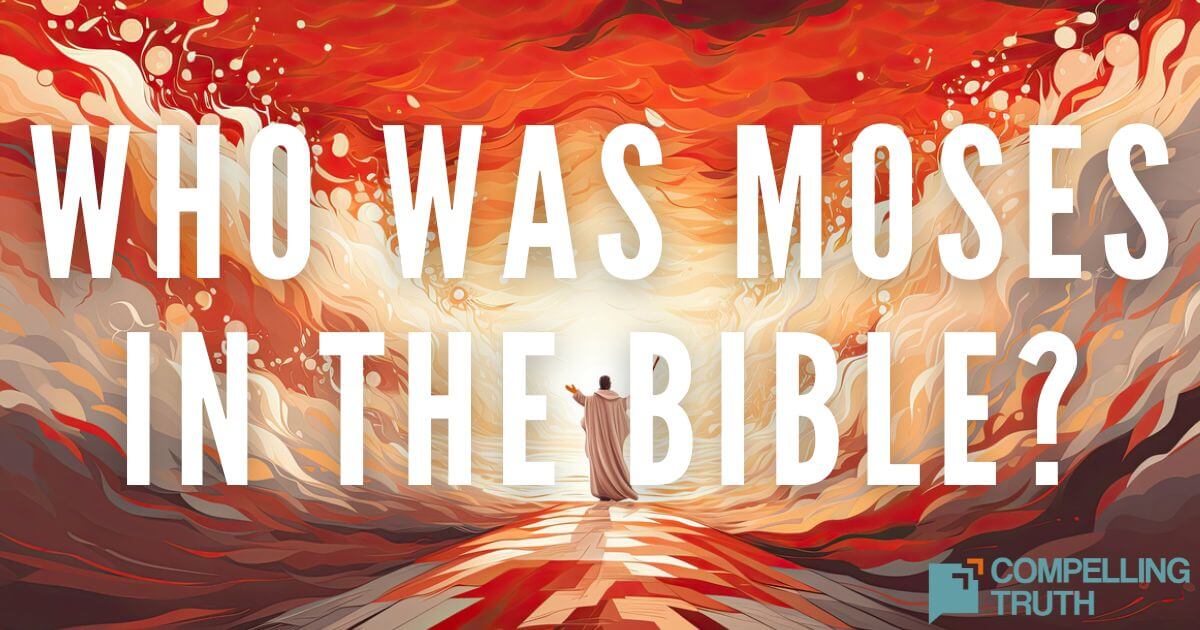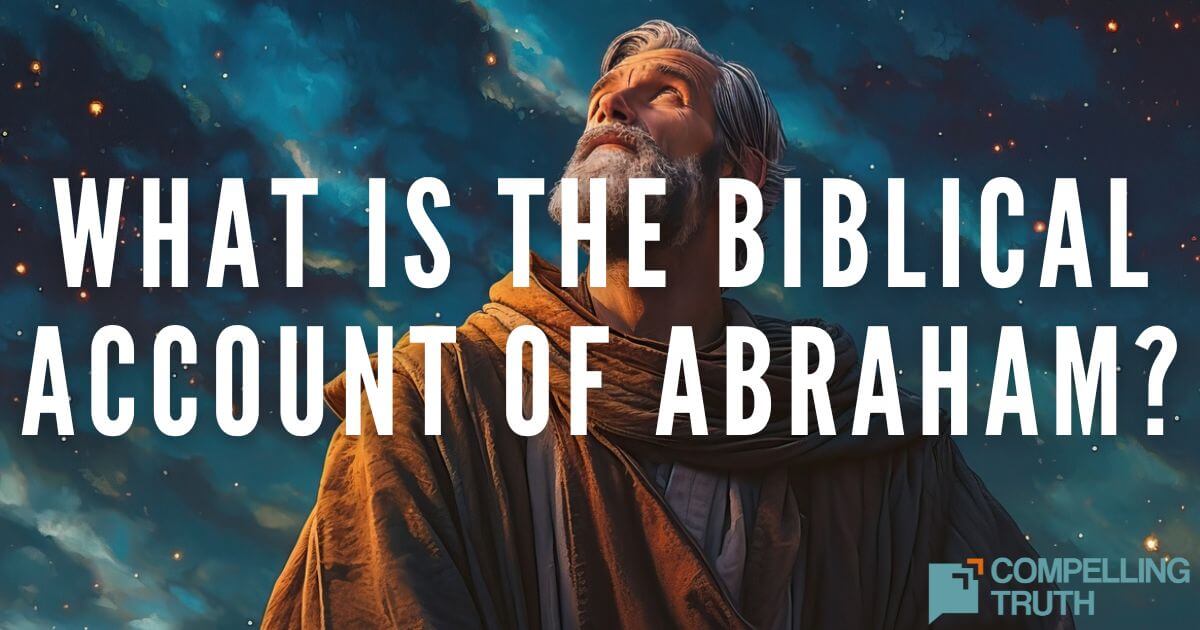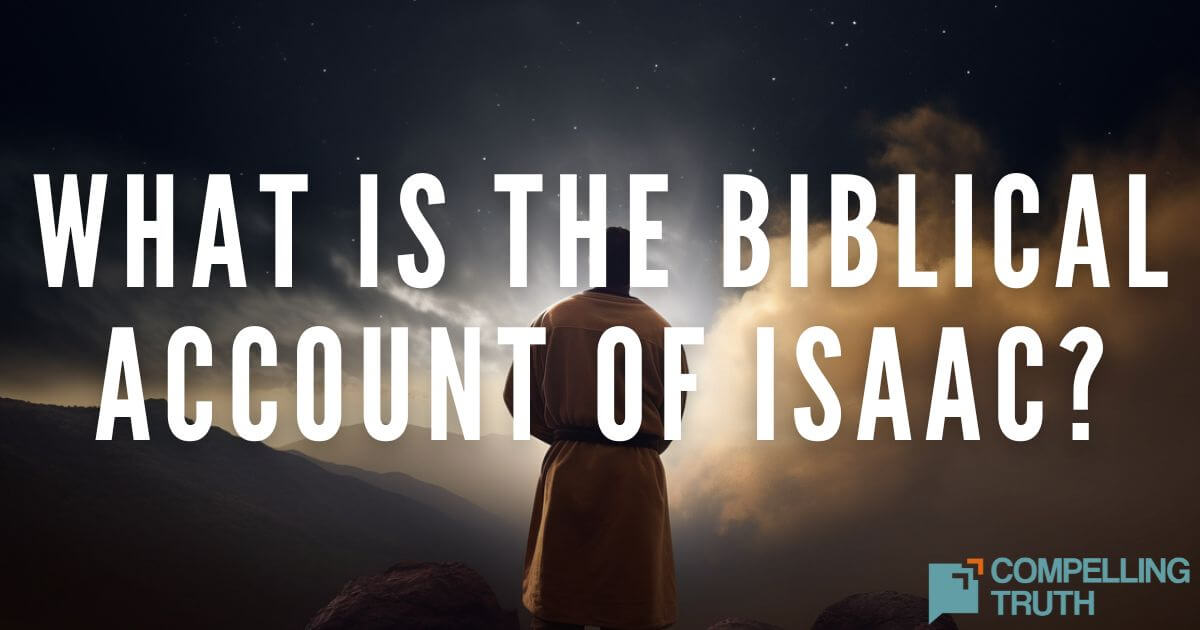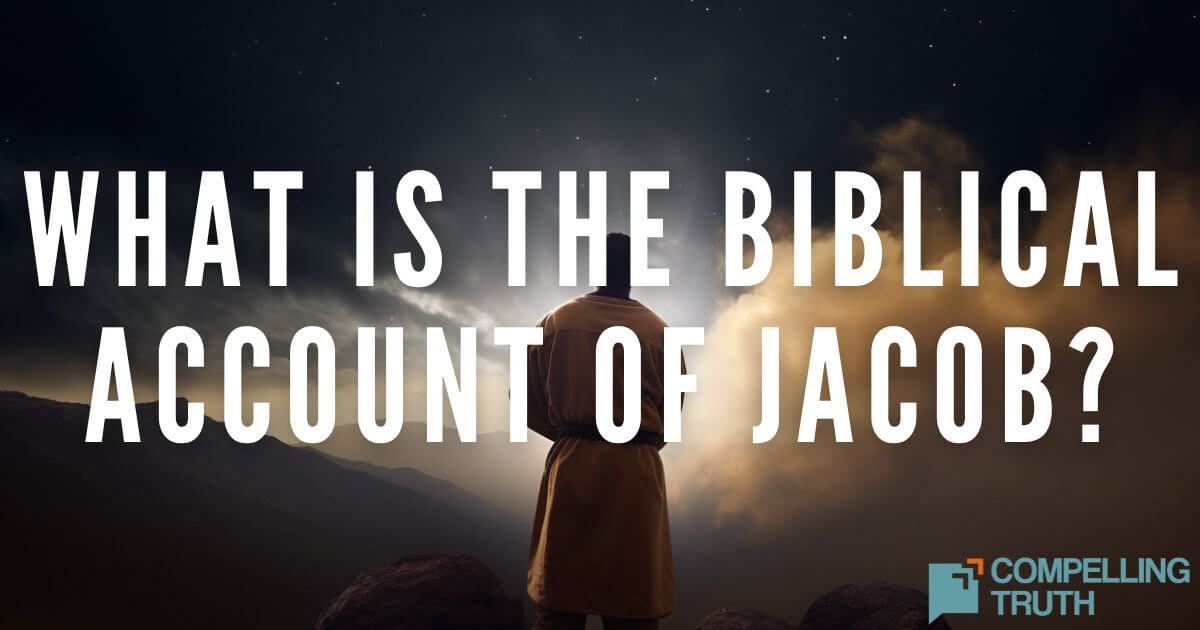Genesis, meaning "In the Beginning," is the first book in the Bible and the first book in the Pentateuch.
Author: The author is traditionally identified as Moses. Other parts of the Pentateuch name Moses as the author (Numbers 33:2; Deuteronomy 31:24) and Jesus and New Testament writers refer to Moses as having written the Law (Mark 12:26; John 5:45–47; Romans 10:5). While some scholars have questioned Moses' authorship, there is no definitive evidence against Moses as the original author of the book of Genesis.
Date of writing: The book of Genesis was likely written between 1440—1400 BC, between the time of Exodus and Moses' death.
Purpose: Genesis answers man's basic questions for life: who are we? where did we come from? and what is our purpose? It records God's original intent to live in relationship with people in the goodness of His creation without sin and death, and, when people rejected this plan, He continued to pursue a relationship with people even when they continued in sin against Him.
Structure: The book of Genesis is made up of mostly narrative. Another prominent feature in the book is genealogies, which serve to connect the stories and record important lineages.
Key verses:
"In the beginning, God created the heavens and the earth" (Genesis 1:1).
"So God created man in his own image, in the image of God he created him; male and female he created them" (Genesis 1:27).
"I will put enmity between you and the woman, and between your offspring and her offspring; he shall bruise your head, and you shall bruise his heel" (Genesis 3:15).
"Now the LORD said to Abram, 'Go from your country and your kindred and your father's house to the land that I will show you. And I will make of you a great nation, and I will bless you and make your name great, so that you will be a blessing. I will bless those who bless you, and him who dishonors you I will curse, and in you all the families of the earth shall be blessed'" (Genesis 12:1–3).
"As for you, you meant evil against me, but God meant it for good, to bring it about that many people should be kept alive, as they are today" (Genesis 50:20).
Themes: The book of Genesis is often called the "seed plot" of the Bible. It contains the beginnings of all of the major themes in the Bible and foreshadows things to come. Most notably, Genesis includes the Protoevangelium (the "first gospel") in Genesis 3:15, the first prophecy of Christ's death and victory over Satan. Other themes introduced in Genesis are creation, sin creating separation from God and man, redemption, and reconciliation.
Brief summary: The book of Genesis contains two main sections: the Primitive History in chapters 1—11 and the History of the Patriarchs in chapters 12—50. The Primitive History contains creation, the fall, the flood, and the dispersion. The Patriarchal History contains the history of the Patriarchs, the founders of the nation of Israel: Abraham, Isaac, and Jacob.
God created a world that was good, without sin or corruption, in which He could live in communion with man. Unfortunately, Adam and Eve, deceived by the serpent in the garden of Eden, tried to be like God and disregarded His parameters for relationship, bringing sin and evil into the world. Man's wickedness increased until it was unbearable, and God sent the flood to cleanse the earth. He spared the only righteous man, Noah, and his family. God made a covenant with Noah and from his family the earth repopulated.
Generations later, God called Abram to follow Him to a new land. God made a covenant with Abram to make a nation out of his descendants and to bless the families of the earth through him. God also promised his descendants land (Genesis 12; 15). At the time, Abram's wife, Sarai, was barren. About ten years later, Sarai gave Abram her handmaiden, Hagar, through whom to have a child (Genesis 16). Ishmael was born, but this was not the son God had promised. About thirteen years after Ishmael was born, God reestablished His original covenant with Abram, this time giving him the sign of circumcision and also changing his name to Abraham. At the same time, God changed Sarai's name to Sarah (Genesis 17). God was faithful and about a year later, Abraham and Sarah had a son, Isaac (Genesis 20).
God renewed His covenant to Abraham with Isaac (Genesis 26). Isaac married a woman named Rebekah and they had twin sons: Esau and Jacob (Genesis 25). God told Rebekah while the children were in her womb that the "older shall serve the younger" (Genesis 25:23). Isaac favored Esau, the eldest and an outdoorsmen, while Rebekah favored Jacob, who dwelled near the tents. Jacob was known as a deceiver. Esau sold his birthright to Jacob for a bowl of stew (Genesis 25:29–34). Jacob later tricked Isaac into giving him the blessing of the firstborn (Genesis 27). After Isaac's death, hearing that Esau was angry enough to kill his brother, Rebekah sent her son to her homeland. On the way, God gave Jacob a dream and gave him the same promise He had given Abraham and Isaac (Genesis 28).
Jacob soon met Rachel; her father (Jacob's uncle Laban) agreed to give her in marriage to Jacob in return for seven years of labor. On the wedding day, however, Laban tricked Jacob and gave him his eldest daughter, Leah, instead. He agreed to also give Jacob Rachel after the wedding week in exchange for an additional seven years of work. Through those two wives and their two handmaidens, Jacob eventually had twelve sons and one daughter (Genesis 29—30). Laban and Jacob tricked one another a few times, but after twenty years living among his mother's people Jacob ultimately returned to his homeland with great prosperity (Genesis 30—33).
In returning to his homeland, Jacob feared his brother Esau. He called out to God saying, "O God of my father Abraham and God of my father Isaac, O LORD who said to me, 'Return to your country and to your kindred, that I may do you good,' I am not worthy of the least of all the deeds of steadfast love and all the faithfulness that you have shown to your servant […] Please deliver me from the hand of my brother […] But you said, 'I will surely do good, and make your offspring as the sand of the sea, which cannot be numbered for multitude'" (Genesis 32:9–12). Alone in the wilderness that night, Jacob wrestled with God. There God changed his name to Israel (Genesis 32; 35). Jacob and Esau met in peace. Jacob settled in Shechem, in the land of Canaan, the land that had been promised to Abraham.
Dinah, Jacob's daughter, was raped by the son of the prince in Shechem. In vengeance, her brothers, Simeon and Levi, made a false treaty with the people of Shechem and plundered the city (Genesis 34). Jacob was fearful of the others in the land, but God called him to go to Bethel. There he was to make an altar and also put away all the foreign gods among his household. God kept the people from pursuing Jacob. Later God again came to Jacob and again named him Israel. He also said, "I am God Almighty: be fruitful and multiply. A nation and a company of nations shall come from you, and kings shall come from your own body. The land that I gave to Abraham and Isaac I will give to you, and I will give the land to your offspring after you" (Genesis 35:11–12).
The next large portion of Genesis is spent giving the account of Joseph, Jacob's eleventh son and his first son by Rachel. Jacob favored Joseph. At the age of seventeen, Joseph had two dreams demonstrating that he would reign over his brothers. He was soon sold into slavery in Egypt by his jealous brothers. Joseph became a servant of one of Pharaoh's officers, but was falsely accused by that officer's wife and put into prison (Genesis 39). While in prison he gave interpretations for dreams God had given two of the prisoners (Genesis 40). But the one who was released from prison forgot about Joseph until Pharaoh had disturbing dreams. Joseph interpreted Pharaoh's dreams, which were warnings from God about seven years of plenty followed by seven years of famine (Genesis 41). Pharaoh recognized the Spirit of God in Joseph and placed him in command, second only to Pharaoh. In time Joseph saved the Egyptians and his family from severe famine. Joseph and his brothers reconciled, and Jacob and all his descendants moved to Egypt where they became a great people.
Application: The book of Genesis lays the framework for our understanding of reality, showing that this universe was created with a purpose. It tells us that the God who created it is good and seeks a relationship with His people. It also reveals how sin and death came into the world, and that we have free will to act in sin or live in communion with God through obedience. Genesis shows that God keeps His word as He fulfilled His promise to Abraham and his children. The way that God dealt with Abraham, Isaac, and Jacob is a reflection of His attitude towards us; He is patient, merciful, and faithful. Joseph's life demonstrates how God works through bad situations to bring about good.
Author: The author is traditionally identified as Moses. Other parts of the Pentateuch name Moses as the author (Numbers 33:2; Deuteronomy 31:24) and Jesus and New Testament writers refer to Moses as having written the Law (Mark 12:26; John 5:45–47; Romans 10:5). While some scholars have questioned Moses' authorship, there is no definitive evidence against Moses as the original author of the book of Genesis.
Date of writing: The book of Genesis was likely written between 1440—1400 BC, between the time of Exodus and Moses' death.
Purpose: Genesis answers man's basic questions for life: who are we? where did we come from? and what is our purpose? It records God's original intent to live in relationship with people in the goodness of His creation without sin and death, and, when people rejected this plan, He continued to pursue a relationship with people even when they continued in sin against Him.
Structure: The book of Genesis is made up of mostly narrative. Another prominent feature in the book is genealogies, which serve to connect the stories and record important lineages.
Key verses:
"In the beginning, God created the heavens and the earth" (Genesis 1:1).
"So God created man in his own image, in the image of God he created him; male and female he created them" (Genesis 1:27).
"I will put enmity between you and the woman, and between your offspring and her offspring; he shall bruise your head, and you shall bruise his heel" (Genesis 3:15).
"Now the LORD said to Abram, 'Go from your country and your kindred and your father's house to the land that I will show you. And I will make of you a great nation, and I will bless you and make your name great, so that you will be a blessing. I will bless those who bless you, and him who dishonors you I will curse, and in you all the families of the earth shall be blessed'" (Genesis 12:1–3).
"As for you, you meant evil against me, but God meant it for good, to bring it about that many people should be kept alive, as they are today" (Genesis 50:20).
Themes: The book of Genesis is often called the "seed plot" of the Bible. It contains the beginnings of all of the major themes in the Bible and foreshadows things to come. Most notably, Genesis includes the Protoevangelium (the "first gospel") in Genesis 3:15, the first prophecy of Christ's death and victory over Satan. Other themes introduced in Genesis are creation, sin creating separation from God and man, redemption, and reconciliation.
Brief summary: The book of Genesis contains two main sections: the Primitive History in chapters 1—11 and the History of the Patriarchs in chapters 12—50. The Primitive History contains creation, the fall, the flood, and the dispersion. The Patriarchal History contains the history of the Patriarchs, the founders of the nation of Israel: Abraham, Isaac, and Jacob.
God created a world that was good, without sin or corruption, in which He could live in communion with man. Unfortunately, Adam and Eve, deceived by the serpent in the garden of Eden, tried to be like God and disregarded His parameters for relationship, bringing sin and evil into the world. Man's wickedness increased until it was unbearable, and God sent the flood to cleanse the earth. He spared the only righteous man, Noah, and his family. God made a covenant with Noah and from his family the earth repopulated.
Generations later, God called Abram to follow Him to a new land. God made a covenant with Abram to make a nation out of his descendants and to bless the families of the earth through him. God also promised his descendants land (Genesis 12; 15). At the time, Abram's wife, Sarai, was barren. About ten years later, Sarai gave Abram her handmaiden, Hagar, through whom to have a child (Genesis 16). Ishmael was born, but this was not the son God had promised. About thirteen years after Ishmael was born, God reestablished His original covenant with Abram, this time giving him the sign of circumcision and also changing his name to Abraham. At the same time, God changed Sarai's name to Sarah (Genesis 17). God was faithful and about a year later, Abraham and Sarah had a son, Isaac (Genesis 20).
God renewed His covenant to Abraham with Isaac (Genesis 26). Isaac married a woman named Rebekah and they had twin sons: Esau and Jacob (Genesis 25). God told Rebekah while the children were in her womb that the "older shall serve the younger" (Genesis 25:23). Isaac favored Esau, the eldest and an outdoorsmen, while Rebekah favored Jacob, who dwelled near the tents. Jacob was known as a deceiver. Esau sold his birthright to Jacob for a bowl of stew (Genesis 25:29–34). Jacob later tricked Isaac into giving him the blessing of the firstborn (Genesis 27). After Isaac's death, hearing that Esau was angry enough to kill his brother, Rebekah sent her son to her homeland. On the way, God gave Jacob a dream and gave him the same promise He had given Abraham and Isaac (Genesis 28).
Jacob soon met Rachel; her father (Jacob's uncle Laban) agreed to give her in marriage to Jacob in return for seven years of labor. On the wedding day, however, Laban tricked Jacob and gave him his eldest daughter, Leah, instead. He agreed to also give Jacob Rachel after the wedding week in exchange for an additional seven years of work. Through those two wives and their two handmaidens, Jacob eventually had twelve sons and one daughter (Genesis 29—30). Laban and Jacob tricked one another a few times, but after twenty years living among his mother's people Jacob ultimately returned to his homeland with great prosperity (Genesis 30—33).
In returning to his homeland, Jacob feared his brother Esau. He called out to God saying, "O God of my father Abraham and God of my father Isaac, O LORD who said to me, 'Return to your country and to your kindred, that I may do you good,' I am not worthy of the least of all the deeds of steadfast love and all the faithfulness that you have shown to your servant […] Please deliver me from the hand of my brother […] But you said, 'I will surely do good, and make your offspring as the sand of the sea, which cannot be numbered for multitude'" (Genesis 32:9–12). Alone in the wilderness that night, Jacob wrestled with God. There God changed his name to Israel (Genesis 32; 35). Jacob and Esau met in peace. Jacob settled in Shechem, in the land of Canaan, the land that had been promised to Abraham.
Dinah, Jacob's daughter, was raped by the son of the prince in Shechem. In vengeance, her brothers, Simeon and Levi, made a false treaty with the people of Shechem and plundered the city (Genesis 34). Jacob was fearful of the others in the land, but God called him to go to Bethel. There he was to make an altar and also put away all the foreign gods among his household. God kept the people from pursuing Jacob. Later God again came to Jacob and again named him Israel. He also said, "I am God Almighty: be fruitful and multiply. A nation and a company of nations shall come from you, and kings shall come from your own body. The land that I gave to Abraham and Isaac I will give to you, and I will give the land to your offspring after you" (Genesis 35:11–12).
The next large portion of Genesis is spent giving the account of Joseph, Jacob's eleventh son and his first son by Rachel. Jacob favored Joseph. At the age of seventeen, Joseph had two dreams demonstrating that he would reign over his brothers. He was soon sold into slavery in Egypt by his jealous brothers. Joseph became a servant of one of Pharaoh's officers, but was falsely accused by that officer's wife and put into prison (Genesis 39). While in prison he gave interpretations for dreams God had given two of the prisoners (Genesis 40). But the one who was released from prison forgot about Joseph until Pharaoh had disturbing dreams. Joseph interpreted Pharaoh's dreams, which were warnings from God about seven years of plenty followed by seven years of famine (Genesis 41). Pharaoh recognized the Spirit of God in Joseph and placed him in command, second only to Pharaoh. In time Joseph saved the Egyptians and his family from severe famine. Joseph and his brothers reconciled, and Jacob and all his descendants moved to Egypt where they became a great people.
Application: The book of Genesis lays the framework for our understanding of reality, showing that this universe was created with a purpose. It tells us that the God who created it is good and seeks a relationship with His people. It also reveals how sin and death came into the world, and that we have free will to act in sin or live in communion with God through obedience. Genesis shows that God keeps His word as He fulfilled His promise to Abraham and his children. The way that God dealt with Abraham, Isaac, and Jacob is a reflection of His attitude towards us; He is patient, merciful, and faithful. Joseph's life demonstrates how God works through bad situations to bring about good.



